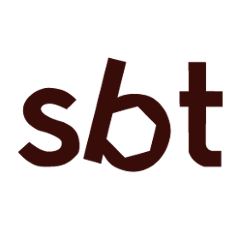JLine 




JLine is a Java library for handling console input. It is similar in functionality to BSD editline and GNU readline but with additional features that bring it in par with ZSH line editor. People familiar with the readline/editline capabilities for modern shells (such as bash and tcsh) will find most of the command editing features of JLine to be familiar.
JLine 3.x is an evolution of JLine 2.x.
License
JLine is distributed under the BSD License, meaning that you are completely free to redistribute, modify, or sell it with almost no restrictions.
Documentation
Forums
Artifacts
JLine can be used with a single bundle or smaller fine grained jars. The bundle contains all jars except jline-groovy that must be included in classpath if you want to use scripting capabilities. The big bundle is named:
jline-${jline.version}.jar
The dependencies are minimal: you may use JLine without any dependency on *nix systems, but in order to support windows or more advanced usage, you will need to add either jansi or jna library.
You can also use fine grained jars:
jline-terminal: theTerminalapi and implementationsjline-terminal-jansi: terminal implementations leveraging thejansilibraryjline-terminal-jna: terminal implementations leveraging thejnalibraryjline-reader: the line reader (including completion, history, etc...)jline-style: styling apijline-remote-ssh: helpers for using jline with Mina SSHDjline-remote-telnet: helpers for using jline over telnet (including a telnet server implementation)jline-builtins: several high level tools:lesspager,nanoeditor,screenmultiplexer, etc...jline-console: command registry, object printer and widget implementationsjline-groovy:ScriptEngineimplementation using Groovy
Supported platforms
JLine supports the following platforms:
- FreeBSD
- Linux
- OS X
- Solaris
- Windows
Jansi vs JNA
To access the JVM's main terminal under a *nix system, no additional dependency will be needed. However, such usage will make use of child processes whenever the terminal is accessed (using Terminal.getAttributes, Terminal.setAttributes, Terminal.getSize, Terminal.setSize). If one of the Jansi or JNA library is present, it will be used and JLine will use native calls instead of child processes. This also allows the use of pseudo-terminals when dealing with non system terminals (for example when creating a terminal for an incoming connection).
On the Windows platform, relying on native calls is mandatory, so you need to have either Jansi or JNA library in your classpath along with the jline-terminal-jansi or jline-terminal-jna jar. Failing to do so will create a dumb terminal with no advanced capabilities.
There is no difference between JLine's support for Jansi and JNA. Both will provide the exact same behaviors. So it's a matter of preference: Jansi is a smaller but more focused library while JNA is a bigger but more generic and versatile one.
Maven Usage
Use the following definition to use JLine in your maven project:
<dependency>
<groupId>org.jline</groupId>
<artifactId>jline</artifactId>
<version>${jline.version}</version>
</dependency>
JLine can also be used with more low-level jars:
<dependency>
<groupId>org.jline</groupId>
<artifactId>jline-terminal</artifactId>
<version>${jline.version}</version>
</dependency>
<dependency>
<groupId>org.jline</groupId>
<artifactId>jline-reader</artifactId>
<version>${jline.version}</version>
</dependency>
All the jars and releases are available from Maven Central, so you'll find everything at the following location https://repo1.maven.org/maven2/org/jline/.
Building
Requirements
- Maven 3.3+
- Java 8+
- Graal 19.3.1+ (native-image)
Check out and build:
git clone git://github.com/jline/jline3.git
cd jline3
./build rebuild
Build Graal native-image demo:
./build rebuild -Pnative-image
Results
The following artifacts are build:
The big bundle includes everything (except jline-groovy) and is located at:
jline/target/jline-${jline.version}.jar
The fine grained bundles are located at:
terminal/target/jline-terminal-${jline.version}.jar
terminal-jansi/target/jline-jansi-${jline.version}.jar
terminal-jna/target/jline-jna-${jline.version}.jar
reader/target/jline-reader-${jline.version}.jar
groovy/target/jline-groovy-${jline.version}.jar
style/target/jline-style-${jline.version}.jar
builtins/target/jline-builtins-${jline.version}.jar
console/target/jline-console-${jline.version}.jar
remote-telnet/target/jline-remote-telnet-${jline.version}.jar
remote-ssh/target/jline-remote-ssh-${jline.version}.jar
Maven has a concept of SNAPSHOT. During development, the jline version will always ends with -SNAPSHOT, which means that the version is in development and not a release.
Note that all those artifacts are also installed in the local maven repository, so you will usually find them in the following folder: ~/.m2/repository/org/jline/.
Running the demo
To run the demo, simply use one of the following commands after having build JLine
# Gogo terminal
./build demo
# Groovy REPL
./build repl
# Graal native-image
./build graal

